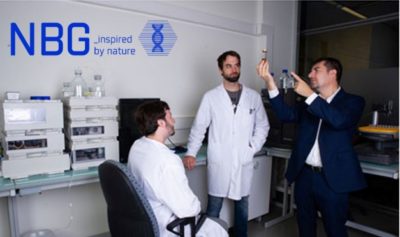Natural Antimicrobial Peptides in Animal Nutrition

Dear colleagues,
One of our team’s lines of research is related to antimicrobial peptides.
We firmly believe that over the coming years, bioactive peptides, including antimicrobial peptides (AMPs), will be crucial, particularly in the latter case, for improving animal health through nutrition with natural molecules that reduce dependence on antibiotics and prevent antimicrobial resistance.
AMPs are low molecular weight proteins (<10,000 Daltons), belonging to a diverse and abundant group of biomolecules produced in various types of animal and plant cells that have broad biological activity against bacteria, viruses, and fungi.
AMP are part of the natural innate immune system of animals and, in plants, form a defence system similar to the innate immunity observed in animals, protecting them from pathogens and pests. These usually have a common characteristic: the presence of an even number of cysteine residues connected by disulphide bridges, which gives them great stability.
Furthermore, their amino acid composition, amphipathicity, helicity, cationicity, and size enable them to insert themselves into bacterial lipid membranes, killing the target microorganism through at least nine proposed mechanisms of action:
1) electroporation
2) carpet model
3) thinning or thickening of the membrane
4) non lytic membrane depolarization
5) toroidal pore
6) oxidized lipid targeting
7) barrel stave
8) disordered toroidal pore
9) non-bilayer intermediate
At NBG, we have been researching non-GMO bioactive peptides, including AMPs, for almost a year, and the first results are coming in. We just ask our customers for a little more patience, and we will have a reliable source of peptides with very interesting functions and secondary nutritional effects available.
Finally, we have attached an article that provides an interesting overview of its potential.
Disfruten del artículo.

